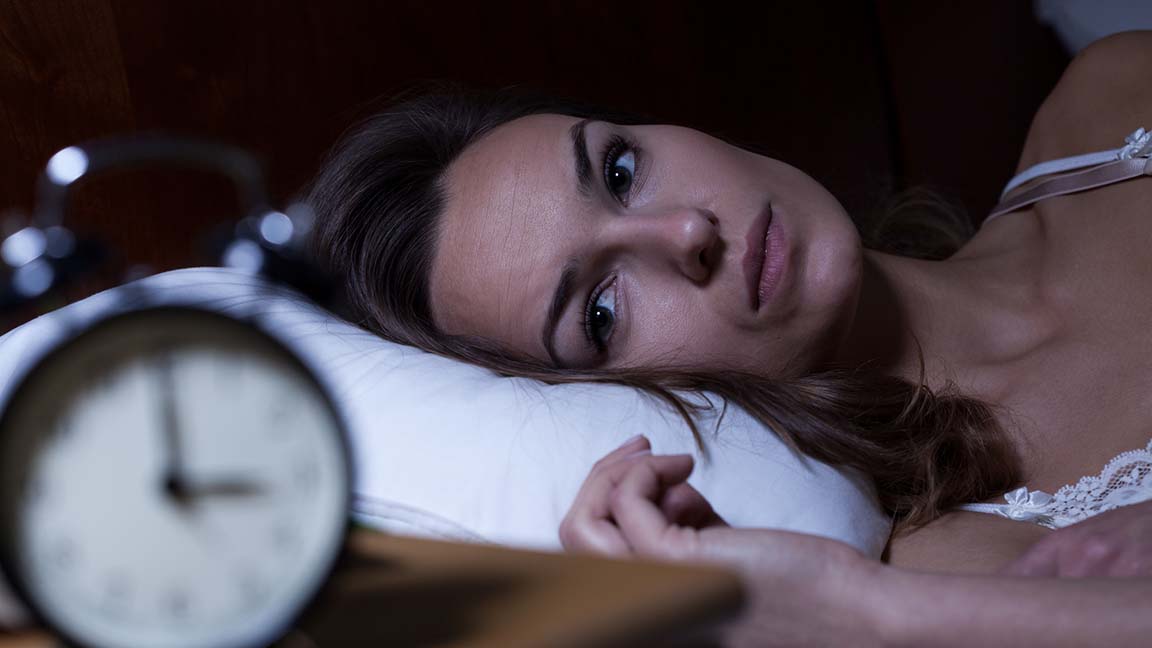The day is done. You settle into bed and close your eyes, but sleep is elusive – your mind is racing.
Maybe you’re replaying all the problems of the day. Maybe you’re already worrying about things that lay ahead. Either way, you’re caught up in a case of nighttime anxiety.
“It’s very common to experience increased anxiety at night because this is often when people slow down and are left alone with their thoughts,” says Heather Partridge, a behavioral health counselor at Tidelands Health Family Medicine at Holmestown Road in Myrtle Beach.
A difficult cycle
During the day, the stress of dealing with a string of immediate tasks forces you to push less-pressing concerns to the back of your mind. When you can finally relax at the end of the day, those packed-away problems expand to fill your thoughts.
The trouble comes when nighttime anxiety eats away at the time you need to rest and recharge — downtime your mind uses to organize itself, make memories and clear away old material.
“Racing thoughts send your body into a fight or flight response, leading to challenges with sleep due to the adrenaline rush that is occurring,” Partridge says.
That creates a vicious cycle. A poor night’s sleep leaves you feeling tired and less able to handle things the next day, so you push more things to the back burner that will reappear at night. Poor sleep also throws off your body’s natural rhythms, compounding your sleep problems day after day.
The good news is that there are ways to tame your anxiety and get that healthy sleep you need. A big component is paying attention to how you prepare for bed – your sleep hygiene, Partridge says.
Here are five strategies to help beat nighttime anxiety:
1. Create a routine
Go to bed and wake up at the same time every day so you body learns when it’s time to sleep. Perform the same tasks along the way, from putting on your pajamas to brushing your teeth to climbing into bed.
2. Put down the screen
Stop doom-scrolling social media. Let your email go. The blue light of our phones and tablets tells our brains it’s time to be active. Setting them aside an hour or so before bed helps put your brain in the proper channel for sleep.
3. Relax your body
Take a warm bath. Wrap up in a cozy blanket. Mediate. Exercise in the afternoon or evening. Releasing the physical tension in your muscles and raising your body temperature can speed you along toward a restful night.
4. Clear your head
Write down what’s on your mind. Whether it’s a journal or to-do list, putting the thoughts down on paper gets them out of your head. That lets you come back to them when you’re rested and ready instead of worn out and overwhelmed.
5. Have some tea
A mug of chamomile tea before bed is a time-honored way to unwind. A glass of warm milk has also been proven to help people sleep. Avoid caffeine and other stimulants several hours before bedtime.
If these steps fail to help, it may be time to contact a professional. Partridge says you should be careful about using sleep aids to overcome your nighttime anxiety.
“This is an important discussion to have with your physician,” she says. “Many people find relief with sleep aids, but some might have a higher dependency potential than others. It is important that all risks and benefits are considered when using a medication.”







